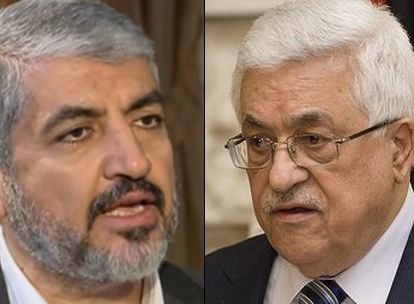Today’s Top Stories
1. David Cameron was re-elected Prime Minister of Great Britain by a surprisingly wide margin. George Galloway, the UK’s best-known anti-Israel politician, was voted out of Parliament by his Bradford constituency. He’s already in trouble for using his parliamentary aid for personal business and for a tweet that violated election laws.
2. Here’s a by the numbers look at Israel’s relief efforts in Nepal. An IDF search and rescue team is returning, as is the field hospital (source: Jerusalem Post).
10: days the field hospital was in operation
150: field hospital staff
60: beds
1,600: patients treated
85: operations performed
8: babies delivered
332: buildings scanned by Israelis for stability
605: Israeli safety courses given to Nepalese
7,900: Nepalese death toll
519,000: homes damaged or destroyed
3 million: Nepalese living in tents
$2 billion: cost of reconstruction’s “first stage”

3. The US Senate votes 98-1 for Congressional Iran review. The bill is expected to pass a House of Representatives vote next week, the Washington Post reports.
If the House and the Senate passed resolutions disapproving of the Iran deal, including overcoming a possible presidential veto, then Obama would be forced to leave in place those congressionally mandated sanctions.
4. The Latest Jewish Dilemma on Campus: Jews on both sides of the aisle are forced to choose between Israel and alliances with minority student groups.
Israel and the Palestinians
• Reuters looks at Hamas-Fatah divisions and what they mean for the Palestinians:
The impact of the stand-off is widespread, but in two areas it is particularly problematic: it is stalling rebuilding in Gaza after the war and it is undermining democratic legitimacy, with the last Palestinian elections held nearly a decade ago.
• The Palestinians are pushing to put Israel on a UN list of child absuers, but agreeing to pursue dialogue regarding their efforts to suspend Israel from world soccer.
However, FIFA did not say whether the Palestine association (PFA) had agreed to drop a proposal for a vote at the FIFA Congress later this month to suspend Israel from international football.
• Israeli soldiers who served in Gaza are rebuffing Breaking the Silence’s collection of “testimonies” alleging IDF human rights violations in Gaza. They “flooded” Shai Levy with their own accounts contradicting Breaking the Silence. Elder of Ziyon translated Levy’s Hebrew article. See Gerald Steinberg’s response to BtS in the Sydney Morning Herald.
• Saudi Arabia cancelled a contract with a Portuguese company that flew one of its empty jumbo jets to (gasp!) Israel for repairs.
• The New York Times takes a closer look at how US campus debates over Israel are driving a wedge between Jews and other minorities.
Mideast Matters
• The Saudis are considering nuclear weapons to offset Iran, reports the Wall St. Journal (click via Google News).
• After Iranian Foreign Minister Mohammed Javad Zarif told Charlie Rose (full interview), “We do no jail people for their opinions,” Iranian activists took to social media begging to differ. Radio Free Europe rounded up some of the online reactions. Here’s the key outtake.
• According to Syrian rebels, 40 Hezbollah fighters were killed on Friday night, including a high-level commander.
• Yemen’s Iran-backed Houthi rebels accepted a 5-day truce.
• The US put an Al Jazeera journalist on terrorism watch list. Ahmad Muaffaq Zaidan, the network’s Islamabad bureau chief, denies being part of Al Qaida or the Muslim Brotherhood. Details at The Independent.
Around the World
• Four Copenhagen busses were found torched while a fifth was sprayed with anti-Israel graffiti. According to the BBC, the attack may be linked to the bus company’s recent refusal to run advertisements promoting a boycott of Israeli goods.

• Danish intelligence chief steps down over failure to avert anti-Semitic attack:
His resignation came hours before the publication of a police report that revealed it took almost four hours from the moment gunman Omar El-Hussein shot dead a filmmaker outside a cultural center, until police were deployed outside Copenhagen’s main synagogue, where a Jewish man, Dan Uzan, who was securing a bat mitzvah celebration, was later killed.
• Quote of the day:
Jonathan Fischer, vice president of the Danish Jewish community, on anti-Semitism and the government’s response to it.
• Britain’s Archbishop of Canterbury calls on Christians to fight “horrendous” violence against Jews.
• The Sunday Times Magazine (of London) looks at the attitudes of UK Jewry on the question of staying in Britain or moving to Israel.
Commentary/Analysis
• The New York Times room for debate section tackles the question: Can the U.S. Make Peace With Netanyahu’s New Government? Weighing in are Jonathan Schanzer, Ehud Eiran, Anne-Marie Slaughter, Zaha Hassan, and Omar Barghouti.
• For more on what others are saying about the new Israeli government, check out, David Horovitz, Nahum Barnea, Dan Margalit, Anshel Pfeffer, Shmuel Rosner, Jonathan Tobin, David Ignatius, Fareed Zakaria, plus staff-eds in the Irish Times and Financial Times (click via Google News).
 • Khaled Abu Toameh comments on the conundrum of Palestinian democracy vs. the likelihood of Hamas winning PA elections.
• Khaled Abu Toameh comments on the conundrum of Palestinian democracy vs. the likelihood of Hamas winning PA elections.
Free and democratic elections are the last thing the Palestinians need now. Such elections would only pave the way for a Hamas takeover of the Palestinian Authority and plunge the region into chaos and violence. As long as Abbas’s Fatah faction is not seen as a better alternative to Hamas, it would be too risky to ask Palestinians to head to the ballot boxes. Instead of pressuring the Palestinians to hold new elections, world leaders should be demanding accountability and transparency from the PA.
They should also be urging the Palestinian Authority to pave the way for the emergence of new leaders and get rid of all the corrupt old-guard representatives who have been in power for decades. Finally, the international community should be urging the PA to stop its campaign to delegitimize and isolate Israel, which drives more Palestinians into the open arms of Hamas and other radical groups, who assume that if the Israelis are as terrible as they are told, they might as well join the group dedicated to killing them rather than to discussing peace.
• A Bowdoin College student referendum on boycotting Israel lost because the pro-Palestinian “absolutism” was too much for the progressive student body. Yet Students for Justice in Palestine spun the results as a victory. William Jacobson explains why:
That argument, that a loss is a win, is common when SJP loses divestment motions in student government. As long as the topic of campus discussion is how bad Israel is, the anti-Israel movement considers the experience worth the effort, because the goal is not to pass resolutions, although it’s a plus if that outcome it achieved. The goal is to raise a generation of opinion leaders who hate Israel.
So from SJP’s point of view, the fact that 200 Bowdoin students voted for the full academic and cultural boycott of Israel is a win. Those 200 can fill plenty of academic-tenure tracks, newsrooms, NGOs, and government agencies. And they will.
• The comparisons made by today’s burning question are apt:
• I’m also reading:
– Noah Pollak: A reset button for Israel?
– Yoram Ettinger: Iran and suspension of disbelief
– Elliott Abrams: Reminders about Iran
– Eugene Kontorovich: Release of ship by Iran is really a ransom
– Jerusalem Post (staff-ed): Anti-Semitism in Argentina
– New York Times (staff-ed): Beyond the Iran nuclear deal
Featured image: CC BY flickr/A? with additions by HonestReporting; Nepal CC BY-NC flickr/Israel Defense Forces; Copenhagen CC BY flickr/Thomas Rousing; Mashaal via YouTube/Face the Nation on CBS; Abbas CC BY-NC-ND flickr/Cabinet Office;
For more, see yesterday’s Israel Daily News Stream and join the IDNS on Facebook.

